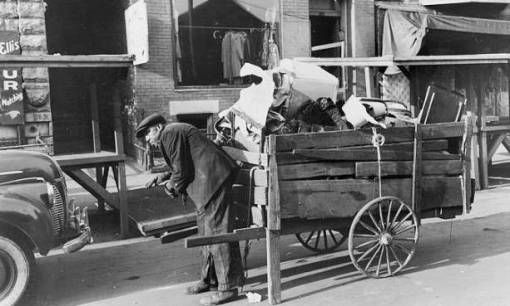
The first recorded interest in recycling was back in 400 BC. Plato was an advocate of recycling. He wrote about the importance of recycling trying to promote those of his time to make the most of their waste products.
And from many archeology discoveries, there is even proof that many early races did their best to reduce their surplus and waste. The garbage of ancient civilizations includes broken pottery, ash, broken tools and the occasional leftovers from dinner. Archeologist were able to see from their waste sites, or dumps, that household garbage has been reduced over time, which demonstrates that they were in fact recycling.
Recycling was found in Ancient Civilizations. Items like Ash, bones, and pottery might seem impossible for us to recycle, but those items can be reused to make many useful items in turn. Ash, as well as dust, was a key property in making bricks. Another way to use ash is for the soil. It helps soil, especially limestone, to make it possible to grow vegetables year after year on the same plot. Today, recycled ash is used in concrete, making and laying asphalt. Ancient civilizations recycled broken pottery by melting them down and mixing them in new clay to throw new pots. Leftover bones were also used for tools, as knives, and sometimes as ornamental jewelry.
During the 1800’s, not all recycling was inspired to save the planet, but instead because of the coming together in cities and the resulting poor sanitary conditions. The European countries were forced to recycle because there were few formal structures for waste removal. Another reason for recycling was due to the lower class poverty, so people had to make due with what they had.
In the case of Benjamin Law, it was business smarts that encouraged him to create the “shoddy” process, or sometimes known as mungo. He discovered this process back in 1813, which was a type of recycling that took old rags fibers and mixed them in with virgin wool. The end result was a more usable cloth and the process of shoddy lasted long into the 1900’s. Another type of smart recycling began in the 1800’s, recycling beverages. Ireland and Great Britain had companies that encouraged buyers to return the bottles. In many cases, there was a deposit for returning bottles to their company. The Industrial age also encouraged recycling as there was more demand for affordable wares. This brought about scrap metal as it was cheaper than pure metals such as ore. Scrap metal is pure metals leftovers that are melted down to create a new metal that can be reused or molded into new wares. The railroad business worked solely in buying and selling scrap metal in order to build railroads throughout the United States.
Learn more about recycling at http://www.freerecyclingquotes.com